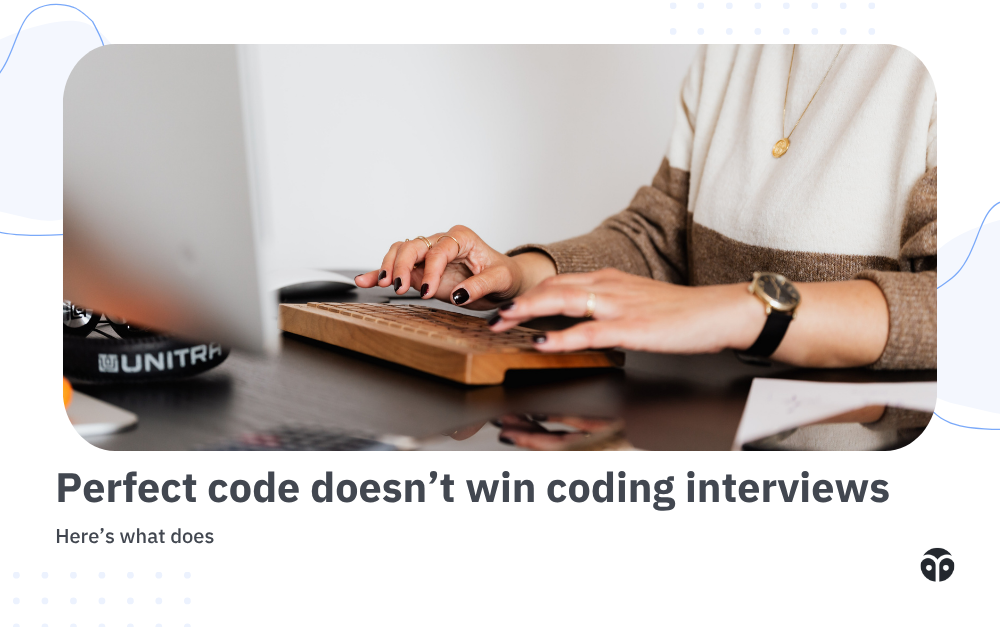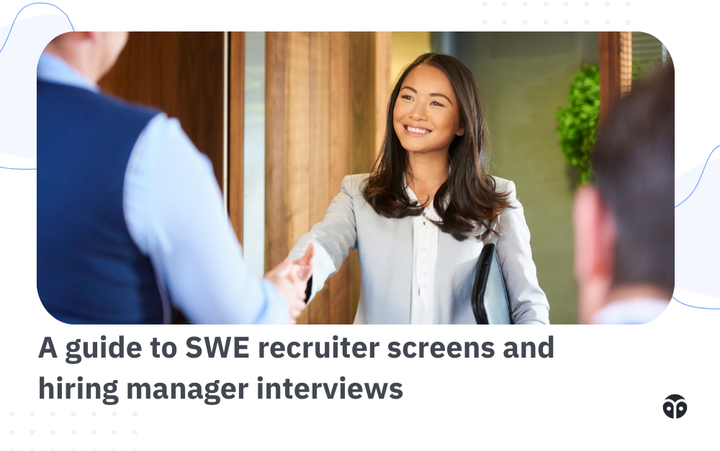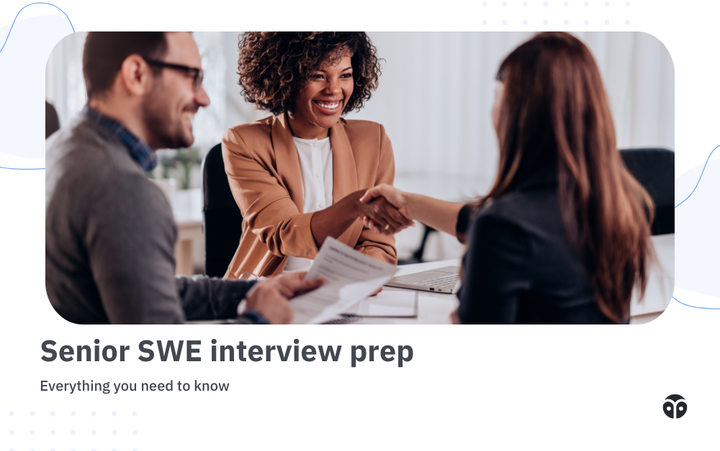Perfect code doesn’t win coding interviews
Strong engineers don’t ace coding interviews by writing perfect code. Learn why communication and visible thinking matter more than perfection.

Most engineers walk into interviews ready to prove themselves in the way they know best: by solving the problem in front of them.
And that part matters. The code has to work. The solution has to make sense. But many people forget that interviews test more than technical ability; they test communication, reasoning, and clarity under pressure.
That balance matters even more now, in an era when AI can generate decent code but can’t explain why it works. Code shows what you can do. Communication shows how you think. Strong candidates find a way to do both at once.
The comfort of the keyboard
When the pressure’s on, code feels like the surest thing you can control. It’s where you’re most fluent and most comfortable.
In a coding interview, that instinct makes sense. You’re there to solve a problem, after all. But the interview isn’t just testing whether you can reach a correct answer; it’s revealing how you get there.
That’s especially true now that AI tools can generate “working” solutions in seconds. The differentiator is no longer who can produce code fastest, but who can interpret, evaluate, and communicate it best.
What interviewers pay attention to often sits between the lines of code:
- How you restate the problem to confirm understanding.
- Whether you identify assumptions early.
- How you weigh tradeoffs before committing to an approach.
- The way you explain your reasoning as you go, not after you finish.
The solution still matters — it always will.
But a clean, working function without context feels incomplete. What makes an interview memorable isn’t just what you wrote; it’s how clearly you brought someone along for the process.
Communication shows real technical skill
Interviews extend beyond being technical evaluations. They’re simulations of collaboration.
The interviewer isn’t a judge; they’re a future teammate. They want to know what it feels like to solve problems with you.
If your process lives entirely in your head, they can’t see the reasoning that makes you effective. A perfect solution written in silence can actually leave less of an impression than a halfway-finished one explained clearly.
Clarity builds confidence. It gives your interviewer something to respond to and shows how you’ll communicate when:
- The problem is ambiguous.
- The requirements change mid-sprint.
- The team disagrees on an approach.
Strong communication is evidence that you understand the problem deeply enough to make it legible to others.
The false sense of “doing enough”
Many engineers assume more effort equals better preparation. They power through hundreds of practice problems, chase the hardest algorithms, and stack up new frameworks, and then wonder why interviews still feel unpredictable.
You can know exactly how to solve a problem and still struggle to explain your approach in the moment. That’s what makes a familiar question feel unfamiliar once someone’s watching.
The engineers who stand out build from a solid base. Their understanding of the fundamentals is so strong that it frees up attention for communication, pacing, and clarity of thought. That foundation makes every other skill easier to demonstrate.
Try this instead:
- Pick a problem and describe your solution in plain language.
- Step away.
- The next day, try writing the code using only that description.
If your explanation is clear enough that you can still follow it later, your reasoning is strong. If not, that’s the muscle to build.
Effective prep comes from slowing down, revisiting core ideas, and learning to express them with precision. Fundamentals make everything else possible, including strong communication.
Better interview prep starts with visible thinking
Many candidates skip practicing communication as a technical skill.
At Formation, we train Fellows to make their thinking legible — to explain, iterate, and reason out loud. You don’t get better just by doing more problems. You get better by learning to communicate your reasoning as you solve them.
What deliberate practice looks like:
- Talking through each step before typing.
- Reflecting on what confused you and why.
- Rewriting or re-explaining your solution until it’s clean and simple.
- Reviewing how your verbal explanation aligns with the code itself.
- Using AI-generated solutions to test your understanding, not replace it.
When you can talk through your thought process naturally, every interview starts to feel less like a test and more like a working session. You stop performing and start collaborating.
Get holistic interview prep with Formation
The Formation Fellowship gives mid-level and senior engineering job seekers everything they need to land their dream roles — including personalized skill brush-ups, resume help, unlimited mock interviews with experienced software engineers and hiring managers from top-tier tech companies, career and negotiation support, and more.
If you’re having trouble navigating your job search on your own, apply here and get unconditional support from a team of engineering mentors, technical recruiters, career coaches, and more.



